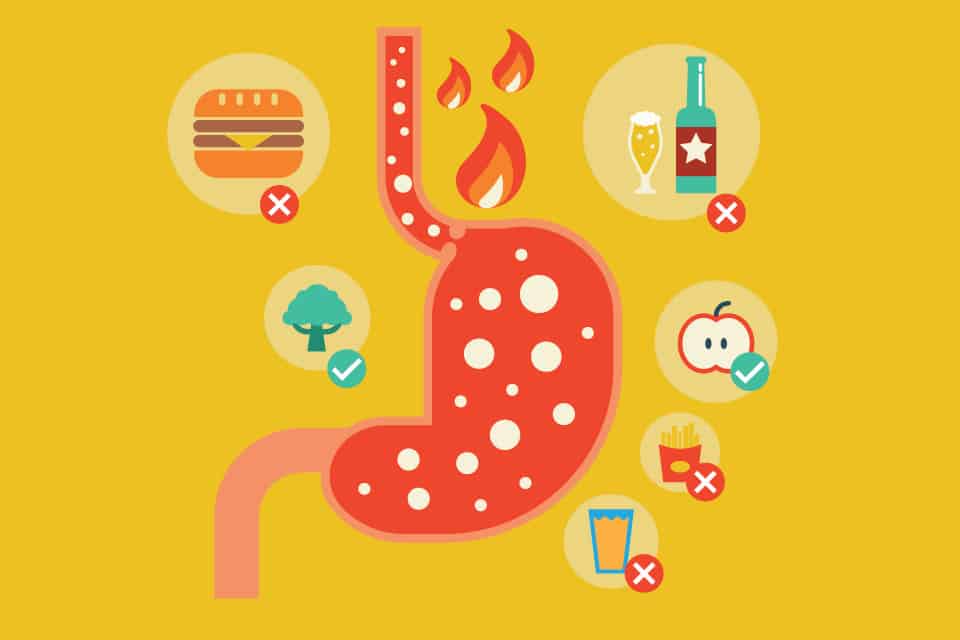Laryngopharyngeal Reflux (LPR)
Even If You Don’t Have Heartburn, You May Still Have Reflux That Affects Your Throat
Most people do not realize there are two different conditions caused by reflux. Gastroesophageal Reflux Disease (GERD) is what immediately comes to mind for most patients, with symptoms of heartburn caused by the backflow of stomach contents into the esophagus. The other condition caused by gastric reflux is Laryngopharyngeal Reflux (LPR). This condition is very common, but it can have very different symptoms than GERD. Identifying which type of reflux symptoms you have is crucial to finding the proper treatment.
The ENT physicians at CornerStone Ear, Nose & Throat have the expertise to diagnose GERD and LPR. Patients with predominantly GERD symptoms are typically referred to a gastroenterologist for ongoing diagnosis and treatment.

Is It GERD?
Classic GERD occurs when acid and digestive enzymes from the stomach travel back into the esophagus. This reflux often takes place when you are lying down, have a very full stomach or eat fatty foods. GERD symptoms are similar to the occasional heartburn that everyone experiences, but it is a more serious condition.
Symptoms of GERD include:
- Heartburn 2 or more times a week
- Heartburn that wakes you from sleep
- Difficult or painful swallowing
Is It LPR?
People with LPR may not experience heartburn at all. Instead, most of the symptoms are related to throat, voice and sometimes even sinus problems. It is estimated that up to 10% of all patients seen by ear, nose and throat specialists actually have LPR as at least one of their underlying conditions. About half of all diagnosed laryngeal (voice box) and voice disorders in adults may be associated with LPR.
Symptoms of LPR include:
- Frequent throat clearing
- Hoarseness
- Chronic sore throat
- Dry mouth
- Difficulty speaking or vocal fatigue
- Chronic cough
- Excessive throat mucus
Lifestyle Changes Can Reduce Reflux
Changing what you eat and drink can greatly reduce symptoms of reflux. Certain foods are acidic, while others stimulate acid production in the stomach or weaken the sphincter (valve) that keeps stomach contents from backing up into the esophagus.
Foods to avoid include:
- Dairy products
- Caffeine (Coffee, tea, soda)
- Citrus fruits and juices
- Foods high in fat
- Chocolate, peppermint, hard candy
Avoid eating late at night – Do not eat or drink anything for 2 to 3 hours before lying down to sleep.
Elevate your head when sleeping – Acid reflux often occurs at night, when you are lying down and gravity is not helping keep the acid from rising out of your stomach. Use wood blocks or bricks to elevate the head of your bed 6 to 8 inches, or use a wedge-shaped pillow to keep your head elevated while you sleep. Your throat should be elevated above your heart, as is with a hospital bed.
Lose weight – If you are more than 20% heavier than your ideal body weight, even a modest weight loss can reduce reflux symptoms.
Avoid alcohol and tobacco – Alcohol increases acid production and directly irritates the throat. Along with numerous other health problems, tobacco also causes reflux.




